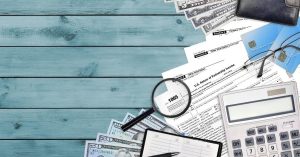Taking Care of Start-up Taxes in 2024
Starting your own business can be a headache. There are all kinds of costs associated with starting up a company and start-up taxes can be the biggest headache of all. As you prepare for tax season, there are a few items that need to be on your checklist.
1. Make Sure You Have a Tax Identification Number
One of the first steps in starting your own business should be to get set up with a tax identification number.
For a sole proprietorship or a limited liability company that does not have employees, you can use your social security number as your TIN.
If you have employees, have acquired your business from someone else, or change your business structure, you will need to apply for an EIN. EIN stands for “employer identification number”. This simply identifies your business as its own entity.
Whichever type of tax ID number you use, the number will be required when filing your taxes.
2. Know Your Business Structure
Different business structures will affect the corporate tax rates you will be liable for as a new business. The two main types of businesses are C Corporations and pass-through entities.
C Corps are taxed twice; the owner is taxed on their net income and the business is taxed on its profits.
Pass-through entities are business types that pass the profits and losses onto the owner. Sole proprietorships, S Corporations, and partnerships are all examples of pass-through entities.
Knowing your business structure will help you identify which tax form you should be using and how to handle reporting income and expenses for the tax year.
3. Identify the Correct Tax Form
Every business type has its own tax forms that are necessary. Making sure you collect the right form will prevent delayed and rejected tax returns.
Schedule C Tax Forms
Schedule C forms are used by sole proprietors and single-member LLCs. Schedule C forms should be attached to the business owner’s individual tax return form.
Schedule K-1 Tax Forms
You will have to use a Schedule K-1 form if you are a partnership, LLC, or S Corp. Schedule K-1 forms show how much was issued to shareholders by a corporation.
Tax Form 1065
Form 1065 is used for multi-member LLCs and for partnerships. These organizations report income and expenses using this form.
Tax Form 1120-S
If you are an S Corp you will use form 1120-S to report income and earnings. S Corps should report all business activity on this form.
4. Compile Expense Records and Receipts
Small businesses need to be especially careful about keeping track of expenses. The IRS does not require businesses to send in receipts, but they do require an itemized list of business expenses.
Receipts should be kept for at least 6 years. Travel and meal expenses are the first to be audited by the IRS. These receipts should be clear and should cover every portion of business travel or meals that are being reported.
It’s also important to note what expenses were paid for from a personal account. This kind of expense can be deducted for tax purposes. Poorly kept records of personal expenditures on the business can lead to lost tax breaks.
5. Check for Any 1099s You Received
If you paid for services from an outside source, you may need to issue a 1099 form. Similarly, if you are a service based business you may have received 1099s from your clients.
Gather all 1099s that you have received and be prepared to report these on your tax return. In addition, double check that you have issued all necessary 1099s.
Keep in mind that even if you didn’t receive a 1099 form from a client, you’re not off the hook. You still may owe taxes even if a client didn’t send you a form. Keep careful records of your payments and receipts so that you can properly pay your taxes.
6. Make Sure Your Taxable Income and Balance Sheet Match
Keeping track of income and expenses is especially important as a small business owner. Be extremely cautious about tracking expenses.
Some of the most important expenditures to keep track of are:
- Receipts from sales and invoices
- Returns of any goods or services sold
- Interest income from savings and checkings accounts
- Utility expenses such as phone services, internet, and electric
- Any insurance expenses
- Transportation and travel expenses
- Interest on loans taken out for the business
- Rent and maintenance expenses
- Office supplies
- Employee and payroll expenses
- Insurance expenses both for business and employee purposes
- Any benefits expenses paid out to employees
With these expenditures listed on your balance sheet, you are ready to fill out your tax forms.
7. Stay on Top of Changes in Management
If your business structure has changed, it’s important to keep note of this.
When ownership of the business passes from one person to another, the business’s equity is affected. Stock distributions can also affect the business’s equity.
Keep in mind when changing ownership or business structure that there are tax ramifications for management changes.
If you are using a tax preparer to organize your taxes, remember to let them know of any of these structural changes.
8. Know How to Pay Online
Many businesses get confused about how to pay their taxes online. While you’ll still need a tax professional to help get the paperwork squared away, you can get a head start on your payments.
For state filings, the website will vary based on what state you live in.
For filing federal taxes and payments, go to EFTPS to make the payments for monthly estimated taxes. This is important to know for paying estimated monthly payments.
Estimated monthly payments should also be carefully recorded. When annual taxes are due, your estimated payments may have been too high or too low and will affect the return your business receives.
If you take the steps outlined in this guide, you will be well-prepared for handling taxes as a small business. Don’t let your taxes confuse you. Take control to file and pay your tax bill the right way.








